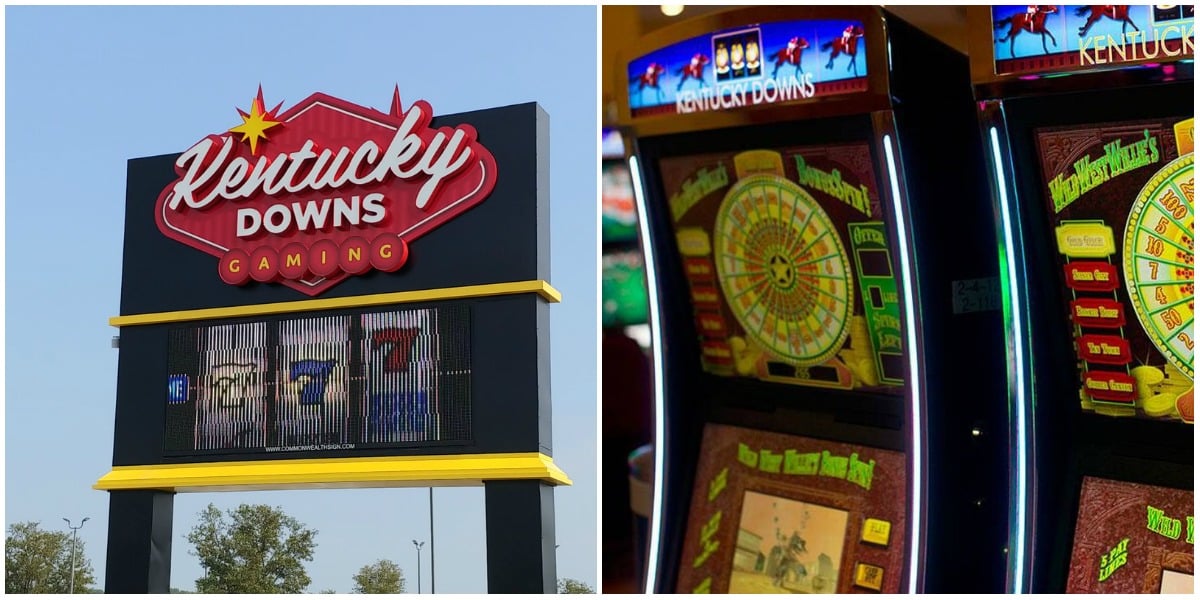The Kentucky Downs horse racetrack and gaming parlor featuring 750 historical racing terminals is being sold to a thoroughbred owner and former casino executive.
 Kentucky Downs is more about gaming than actual horse racing. (Image: Kentucky Downs/Casino.org)
Kentucky Downs is more about gaming than actual horse racing. (Image: Kentucky Downs/Casino.org)The undisclosed deal transfers the venue from its current owners Kentucky Downs Partners to a recently formed entity called Kentucky Racing Acquisition. The latter is owned by Ron Winchell, a prominent thoroughbred breeder and racer, and former Station Casinos CFO Marc Falcone.
Kentucky Downs hosts just a handful of actual races each year, and instead relies on its historical racing machines for income. The gaming devices, which have been compared to slot machines, allow bettors to place wagers on horse races that have already occurred.
Winchell owns his family s namesake thoroughbred breeding and racing operation in Kentucky. Falcone left Station Casinos last year, but remains a consultant.
Kentucky is one of just 10 states that does not have tribal or commercial casinos.
History Creates FutureThe horse racing industry is a dying business across the US, and track owners have pleaded with state lawmakers for the inclusion of slot machines in order to save their businesses. In states where commercial gambling remains outlawed, historical racing devices have become the next-best thing.
Here s how they work: gamblers are presented pre-race odds for each horse. The actual names of the horses, jockeys, and trainers are concealed, as is the date of the race and track location. Players make their wagers and the outcome is revealed.
The controversy comes from the machines offering a handicapping feature that allows players to quickly make their picks based on pre-race odds. The rapid ability to make wagers are why critics of the machines say they re just cleverly designed slots.
The Kentucky Horse Racing Commission (KHRC) modified its definition of parimutuel wagering to permit historical racing machines in 2010. Kentucky Downs installed the devices the following year, and its betting handle surged.
Kentucky Downs reported pari-mutuel wagering handle of about $20 million in 2010. This year, the track will accept close to $1 billion in bets.
Churchill Downs is building a parlor on what used to be a horse training facility some five miles from its track that annually hosts the Kentucky Derby. The venue is authorized by the KHRC to house up to 2,000 machines.
Along with Kentucky Downs, historical racing can be found at Keeneland, Ellis Park, and Derby City.
Sports Betting BillThe racetrack gaming venues could soon become armed with another revenue generator: sports betting.
Kentucky State Senator Julian Carroll (D-District 7), who served as the state s governor from 1974-1979, legislation last week. The measure would legalize sports betting at existing horse racetracks and parimutuel facilities, and tax net revenue at 25 percent.
Kentucky is one of 15 states considering sports gambling. Delaware, New Jersey, West Virginia, Mississippi, and New Mexico already have sportsbooks up and running following the May Supreme Court repeal of the federal ban.


